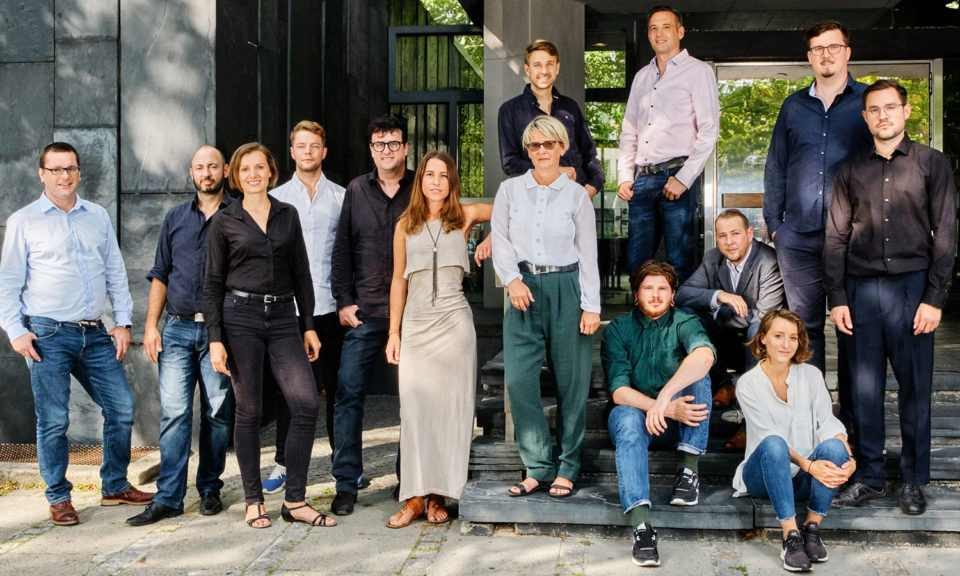KILT Protocol Introduces Decentralized Identity Verification with SocialKYC

KILT Protocol today announced SocialKYC, a decentralized identity verification service for regaining control over your digital identity. SocialKYC will allow users to manage, store and present their personal credentials, enabling users to select which elements of their private information are accessed by online services.
KILT is an open-source blockchain protocol for issuing decentralized identifiers and verifiable credentials. KILT brings the traditional process of trust in real-world credentials (passport, driving license, certificates) into the digital world, representing your identity while keeping your data private and in your possession. The KILT mainnet will launch later this year in the Polkadot ecosystem as a parachain on the Kusama network; SocialKYC will launch shortly after KILT mainnet.
Developed by KILT in collaboration with Galaniprojects, SocialKYC will be implemented by Polkadex, a decentralized cryptocurrency exchange; Fractal, a KYC and decentralized identity provider; Subsocial Network, an open protocol for decentralized social networks; GameDAO, a decentralized autonomous cooperative for video game creators and investors; and DeBio Network, an anonymous-first platform for medical and bioinformatics data.
How it Works
In the current Web 2.0 world, users provide personal credentials like email addresses and phone numbers to free internet services in return for access. These credentials are frequently shared between service partners and subsidiaries, and applications often bypass the users to go through these services and authenticate user credentials.
KYC or “Know Your Customer” is standard practice while opening an account with a bank or exchange, proving that you own your government-issued credentials like a passport. “SocialKYC” verifies a user’s internet identity by proving control of their social accounts (LinkedIn, Twitter, TikTok, Discord, Github, etc.), email address, or phone number. Unlike Web 2.0 sign-in processes, SocialKYC forgets about the user and the credential as soon as the credential is issued. Personal data is not stored, siloed, or shared.
To verify that the user controls their social account, SocialKYC sends a challenge such as posting a sentence on Twitter, clicking an email link, or confirming a code sent via SMS. SocialKYC then sends Verifiable Credentials to the user that remain in their sole possession and in their control. Users can present these credentials across many services – gaming, genetics labs, exchanges, media companies – when and how they prefer.
“In the real world, you have control of your credentials. You have credentials in your wallet at all times; you decide who to share them with, and for what purpose, and when. Ironically we have lost this control in the digital world,” said Ingo Rübe, founder of KILT Protocol. “SocialKYC is designed to liberate consumers, putting their digital identity back in their hands.”
Partners
Earlier this year, KILT partnered with Fractal and Polkadex to create a decentralized KYC system for users of the exchange. Polkadex and Fractal are implementing KILT Protocol as the underlying infrastructure for managing the KYC credentials required by Polkadex to streamline the onboarding experience.
“SocialKYC removes the need to trust the Polkadex platform for our users, as they can get verified in a truly decentralized manner. In this way, we can keep the KYC process on a non-custodial exchange simple and our users are free to choose and control what private data they want to share. It is a real step forward for the DeFi industry,” said Gautham J, CEO of Polkadex.
“SocialKYC is a forerunner in the digital identity and verification space. Together with KILT, Fractal Protocol can unlock great value in the ad market by providing a fair, open-source alternative to data duopolies ensuring a high-quality version of the free internet,” said Julian Leitloff, co-founder and CEO of Fractal.
Subsocial Network is a decentralized platform that offers new ways for social media users to monetize their interactions, without sacrificing their data or privacy. “Content creators on Subsocial will be able to mint their own tokens, tip posts and set up rewards. SocialKYC will help us verify these transactions across our marketplaces,” said Alex Siman, founder of Subsocial Network.
Gaming is another top use case for SocialKYC and KILT verifiable credentials, which could be used for:
- Developing registries for pairing players and tracking awards
- Issuing educational credits and age verification for youth gaming
- Providing KYC for rewards and payment systems
- Tracking performance across multiple game platforms and networks.
“Our cooperative of video creators, blockchain architects, and business designers is focused on designing sustainable videogame economies,” said Marco Bahn, founder of GameDAO and ZERO Network. “Community funding instruments, secure transactions, and identity verification are crucial to fostering gaming as a profession. SocialKYC aligns with our vision of improving videogame economics for the player, creator, and funder by increasing engagement and participation.”
DeBio Network is working with KILT to build a mechanism for issuing revocable, verifiable credentials that ensure privacy and data security. “The decentralized nature of this SocialKYC solution, along with the guarantee of user sovereignty, supports the Decentralized Bio philosophy perfectly. It may also provide a way for us to onboard DIY labs and individual hobbyists interested in working with our data,” said Pandu Sastrowardoyo, initiator of DeBio Network.
“Our company became the first KILT integrator in 2019,” said Anastasia Galani, founder and CEO of Galaniprojects. “We are thrilled to be part of this initiative and develop new applications for the KILT ecosystem, so users will own their data.”
About Polkadex
Polkadex is a fully decentralized, peer-to-peer, order book-based cryptocurrency exchange for the Defi ecosystem built on Substrate, the same framework that powers Polkadot. It enables high-speed trading, high liquidity, and lightning-fast transaction speed for supporting Defi applications and services.
Press contact: Kseniia Baziian – kseniia@polkadex.trade
About Fractal
Built on Polkadot, Fractal Protocol is an open-source, zero-margin protocol that defines a basic standard to exchange user information in a fair and open way, ensuring a high-quality version of the free internet. In its first version, it is designed to form a data commons in order to replace the ad cookie and give users back control over their data. Fractal was founded in 2017 and with its compliance product Fractal ID is trusted by 475k verified users in the FinTech and blockchain space.
Press contact: Georg Runge – georg@fractal.id
About Subsocial Network
Subsocial is an open platform for decentralized social networks and marketplaces. Subsocial is censorship-resistant and has built-in monetization methods. It’s built with Polkadot and IPFS tech stacks.
Press contact: Alex Siman – hello@subsocial.network
About GameDAO and ZERO Network
GameDAO solves sustainability in the business design of videogames, e-sports, digital arts by providing decentralized finance and coordination protocols for community-driven fundraising, operation, and ownership of videogame economies. A decentralized autonomous cooperative, GameDAO runs on ZERO Network, which is built with Parity Substrate and aims to become a Relaychain and Parachain in the Kusama and Polkadot ecosystems.
Press contact: Marco Bahn – m@zero.io
About DeBio Network
DeBio is an anonymous-first, decentralized platform for medical and bioinformatics data. We are building a decentralized platform for your personal medical needs, starting with genetics. Our concept allows synergy between labs of all scales while guaranteeing user anonymity and sovereignty at every step of the genomic data science workflow – from sample collection, data storage, to report generation.
Press contact: Pandu Sastrowardoyo – p@blocksphere.id
About Galaniprojects
Galaniprojects is a Berlin-based IT consulting firm with expertise in project and product management and blockchain applications. The firm serves global clients in media and publishing, telecommunication, automotive and transport.
Press contact: Anastasia Galani – galani@galaniprojects.de
About KILT Protocol
KILT is an open-source blockchain protocol for issuing claim-based verifiable, revocable, and anonymous credentials for Web 3.0. It allows users to claim arbitrary attributes about themselves, have them attested by trusted entities, and store the claims as self-sovereign credentials. The protocol offers a simple JavaScript SDK so useful applications can be built without requiring any blockchain development skills. KILT Protocol is developed by BOTLabs GmbH in Berlin.
Press contact: Christine Mohan – christine@kilt.io

